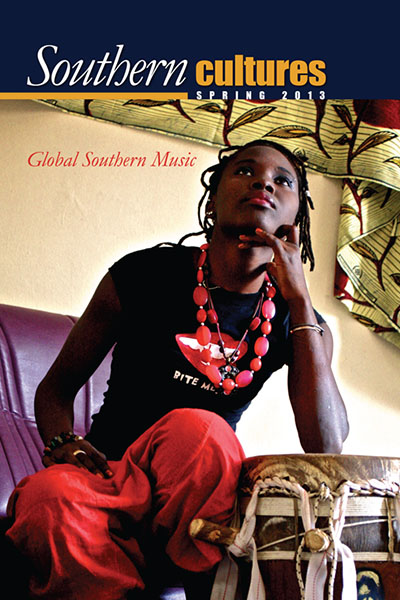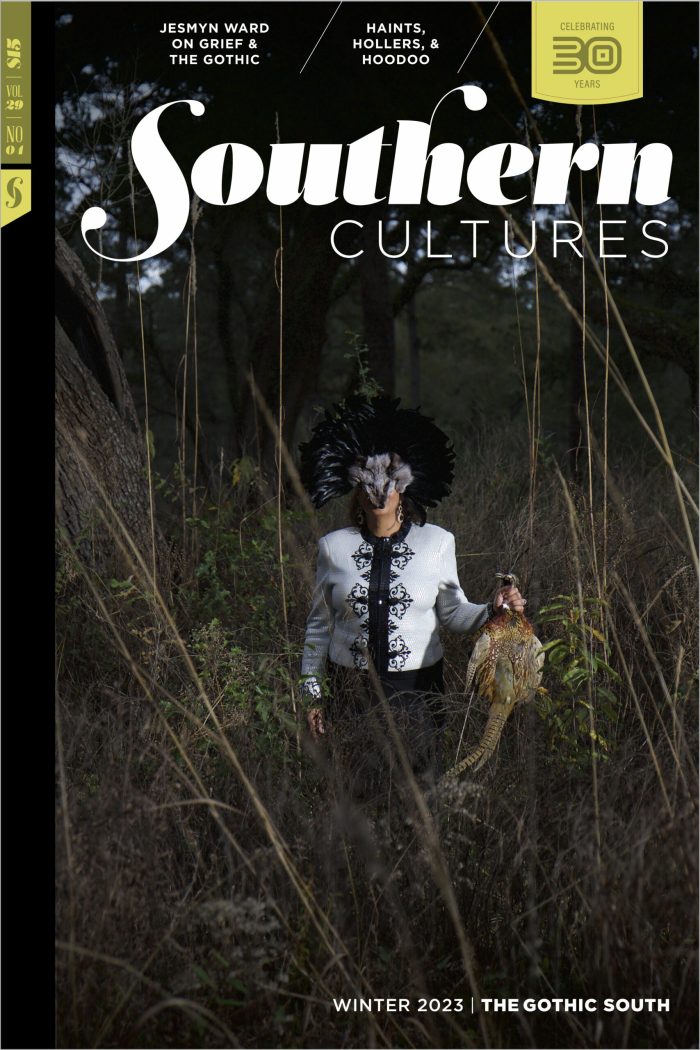by Jocelyn R. Neal
“The questions we ask of our music suggest parallels for our own reflections: where did it come from, how can it both ‘be’ and ‘become’ southern, and how much of its nature is created through the act of performance?” For more than a century, non-southerners have headed South on a series of musical quests and »
by Ali Colleen Neff
“Key to the emerging styles of the American South and West Africa alike are traditions of eloquence that extend to the foundations of Black Atlantic culture.” With a heavy diamond stud anchoring each earlobe, hip-hop hustler Akon disembarks from his helicopter, spreads his arms to the sky, and sings about his solvency from the bow »
by John W. Troutman
“Native Hawaiian guitarists, who slid metal bars over their strings to create sweeping glissando sounds, inundated the South in the first decades of the twentieth century.” Although the work of eliminating blues myths is a hard row to hoe, scholars have successfully uprooted a few, including the persistent belief that into the early twentieth century, »
by William R. Ferris
“What does it mean – about the eagle flying on Friday?” On December 27, 1980, I traveled with blues singer James “Son Ford” Thomas to Houston, Texas, where we appeared together at the annual meeting of the Modern Language Association on an oral and written literature panel that was organized by Michel Fabre. I spoke »
by Christian O'Connell
“The blues is American music with origins within African American culture of the South, but its story has not been limited by the same national or cultural boundaries.” Seasick Steve’s appearance on BBC breakfast television in 2009 to promote his aptly titled album, Man From Another Time, was an uncanny reminder of the post-war blues »
by Alex Sayf Cummings
“The production and sale of illicit music, like liquor, has been part of what the late historian Jack Temple Kirby dubbed the ‘countercultural South’—an undercurrent of defiance to both the government and big business that persisted throughout the twentieth century.” The hillbilly with his jug of moonshine (marked XXX) is a familiar, if problematic caricature »
by Gretchen Wood
“Shops featured Elvis window displays; couples renewed their marriage vows before an Elvis wedding celebrant; and even the statue of Sir Henry Parkes, the town’s namesake, sported Elvis’s seventies-era sunglasses.” For the past twenty years, Australian fans have gathered in Parkes, New South Wales, to celebrate Elvis Presley’s birthday. Since the initial gathering of two »
by Michael McFee
“. . . until his finger pads started bleeding again, fresh calluses splitting as he played . . .” Plunking the rusty washtub basswas simple, tautening or relaxing its ropeso that a few thumping notesrose or fell at the floor of a bluegrass tune.
by Thomas Hackett
“His career was entwined with virtually every great blues, R&B, and soul performer of the twentieth century, including Son House, Muddy Waters, Sam Cooke, B.B. King, and Al Greene; yet, Thomas believed that as a pure entertainer he has no equal.” In his eighty-four years, Rufus Thomas worked with hundreds of colorfully named musicians and »
Music
by Aaron Smithers
Music Issue Companion CD Despite a devotion to the idyllic homestead, the southern journey circumvents the globe. The traveler takes to the road on a never-ending search for home, that ever-elusive sanctuary constructed in memory and remodeled in song. The seeker looks to the edges of the earth for enlightenment, and the sinner looks beyond »





